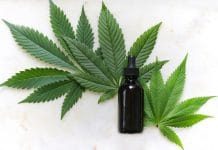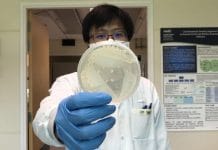GLOBAL communities are increasingly more discerning and demanding that only the purest and best ingredients are used in the making of pharmaceuticals. Patients are more curious and seek to understand more about the origins of their proposed medication as part of fulfilling their religious beliefs, besides ensuring the safety, effectiveness, quality and hygiene of the products.
This increasing demand for halal pharmaceuticals provides an opportunity for the pharmaceutical industry to look into producing halal pharmaceutical products, and to position themselves to become more competitive in penetrating the global halal industry.

Amrahi Buang, President of the Malaysian Pharmaceutical Society (MPS), said that Halal certified pharmaceutical products are beyond that of being consumed by the Muslims, as it also means the products fulfill the Thoyyiban aspects that includes safety, efficacy, quality and hygiene. The processes, are in accordance with both the regulatory and halal compliance, hence, giving confidence to consumers, especially Muslim consumers, when making their choices of pharmaceutical products.
A retired Chief Pharmacist and Deputy Director (Professional) at the University Malaya Medical Centre (UMMC), Kuala Lumpur, Amrahi Buang has wide-ranging experience in halal matters as he was responsible for developing the first internal guidelines on the administration of non-halal medicines for Muslim patients at UMMC. He is passionate about halal pharmaceuticals and is a leading subject matter expert in the field in Malaysia and the ASEAN region.
“There is an increasing demand for halal products amongst global communities and this offers the pharmaceutical industry an opportunity to reinforce its commitment to developing halal pharmaceuticals in order to tap into the potential halal market.
“The adherence to the halal industry would give a strategic advantage to pharmaceutical companies for sustainable growth given the enormous opportunities that remain largely untapped in the halal pharmaceutical industry,” he added.
The halal pharmaceutical industry, valued globally at an estimated USD$87 billion in 2017, is expected to grow to USD$131 billion by 2022, and the market potential may be even greater as it is not just exclusive to the Muslim communities. Halal pharmaceuticals is universally acceptable and can be consumed by everyone.
Halal for pharmaceutical products is in fact an additional layer of assurance. The products must first conform with the requirements of the Good Manufacturing Practices (GMP) before fulfilling additional pre-requisites for halal certification, hence, setting a higher benchmark for quality. Halal is a new recognised value in the pharmaceutical industry.
The Malaysian standard MS:2424 Halal Pharmaceuticals General Guidelines is currently spearheading the global initiatives in the establishment of a proper, well-regulated and harmonised accreditation and halal management system within the manufacturing and production of medicines and health supplements while addressing the entire supply chain from processing to handling, packaging, labelling, distributing, storing and displaying medicines and health supplements.
“It has also gained increasing acceptance among non-Muslims who associate halal with ethical consumption just as other values such as social responsibility, stewardship of the earth, economic and social justice, animal welfare and ethical investment – in short beyond their religious compliance,” he added.
Nonetheless, one must acknowledge that halal for pharmaceuticals is relatively at an early stage of development globally and in Malaysia, and several issues still need to be addressed quickly i.e. availability of halal certified raw materials remain one of the biggest challenges, especially gelatine.
Thus, the presence of a halal eco-system is vital in strengthening the halal supply chain especially for emerging areas such as biosimilars and medical devices which require enablers and Fatwa decrees. The transformation and strengthening of the eco-system are required for these new products and specialised areas in order to achieve the halal certification and get wider acceptance by the healthcare providers and consumers.
“Malaysia is currently the global leader in the certified halal pharmaceutical industry because it is the only nation that has a standard to manufacture certified halal pharmaceuticals in the world. We have numerous pharmaceutical companies producing halal pharmaceutical products namely Duopharma Biotech Berhad (formerly known as CCM Duopharma Biotech Berhad), Ain Medicare Sdn. Bhd. and many others.
“This sector should be supported as it will boost exports and the economy as Malaysia has the best halal eco-system in the world and certified halal pharmaceuticals is right at the top.
“Hence, the government should support the local pharmaceutical industry to manufacture certified halal pharmaceuticals for the local and global market, including providing various incentives to the player in this sector,” he added.
The global halal product market is currently dominated by four main sectors namely food, pharmaceuticals, cosmetics and others. Pharmaceuticals account for 26 per cent, the second largest sector after food with 61 per cent and cosmetics with 11 per cent.
“Although halal pharmaceuticals are a requirement for Muslims, there is absolutely no issue with prescribing these products for non-Muslim patients. However, halal pharmaceuticals should not be made mandatory at this moment.
“The demand will come when the consumers and patients are more aware about the existence of certified halal pharmaceuticals. The media also play a crucial role in promoting certified halal pharmaceuticals to create greater awareness and demand for such products,” he said.
The wide range of options for halal pharmaceutical products have also shifted the pharmaceutical players to become more competitive in penetrating the global halal industry, especially in the predominantly Muslim nations.
Halal is an investment that would benefit the global pharmaceutical players, and it is well supported by the increasing demand for the halal products by both the Muslim and non-Muslim consumers worldwide.










